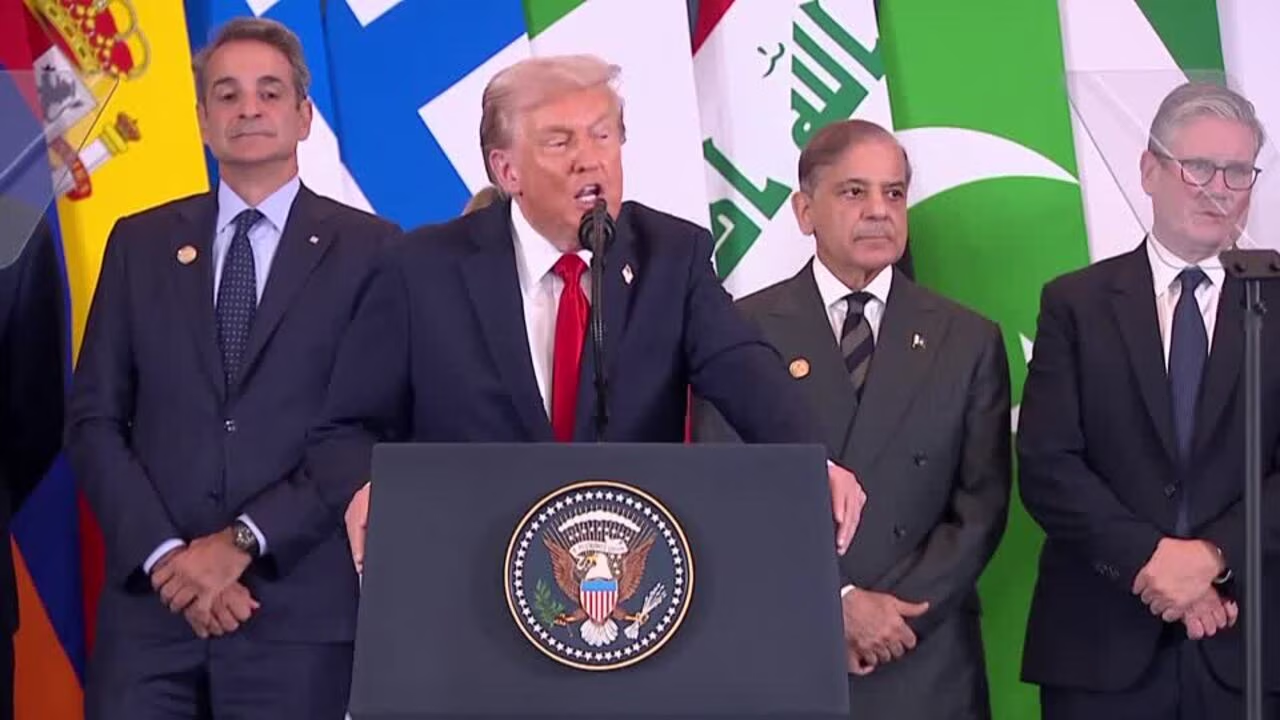Washington, DC – October 16, 2025 – Just days after President Donald Trump touted a “historic breakthrough” (Gaza Deal) in the Israel-Hamas conflict, early fissures are threatening the fragile Gaza ceasefire agreement.
While U.S. officials project cautious optimism, Israeli leaders are voicing growing impatience over delays in hostage recovery efforts, raising fears that the hard-won truce could unravel before full implementation.
The first phase of the deal, announced on October 8 and formally signed in Egypt on October 13, calls for Hamas to release the remains of approximately two dozen deceased Israeli hostages in exchange for a temporary halt to Israeli military operations and the release of Palestinian prisoners.
Trump, speaking alongside Egyptian President Abdel Fattah el-Sisi at the Sharm El-Sheikh signing ceremony, hailed it as a “game-changer” that could pave the way for lasting peace and Gaza’s redevelopment into the “Riviera of the Middle East.”
The agreement, brokered with input from Qatar, Egypt, and other regional players, also envisions a phased Israeli withdrawal and the establishment of a technocratic Palestinian administration in Gaza, though critical details on disarmament and long-term governance remain unresolved.
Yet, optimism in Washington contrasts sharply with mounting tensions on the ground. Israeli officials, including Prime Minister Benjamin Netanyahu, have accused Hamas of stalling on the handover of hostage remains buried under rubble from the 23-month war, which has claimed over 66,000 Palestinian lives and displaced nearly the entire population of Gaza.
On Wednesday, Israel’s defense minister warned of resuming airstrikes if progress isn’t made within 48 hours, a threat that U.S. National Security Adviser Jake Sullivan dismissed as “rhetoric born of frustration” but not indicative of an imminent breakdown. “We’re committed to restraint from all sides,” Sullivan told reporters, emphasizing that the U.S. is actively mediating to address logistical hurdles, such as Hamas militants’ fears of retribution during recovery operations.
The White House remains bullish, with Trump himself posting on X late Thursday: “Deal is strong – Israel and Hamas will deliver. Peace is closer than ever!” Senate Majority Leader John Thune echoed this sentiment, praising Trump’s “relentless diplomacy” while acknowledging Hamas’s “questionable motivations.”
Analysts, however, warn that the agreement’s vagueness on phase two – including full demilitarization and aid flows – could exacerbate divisions. “This isn’t 2019’s Abraham Accords; it’s a ceasefire in a war zone,” said Marwan Bishara, Al Jazeera’s senior political analyst. “Serious disagreements linger, and one misstep could reignite the cycle.”
In a potential stabilizing move, Turkey announced Thursday it would dispatch a specialized team of recovery experts to Gaza as part of a multinational task force monitoring the ceasefire and aiding reconstruction. President Recep Tayyip Erdoğan, a vocal critic of Israel’s campaign, confirmed Ankara’s role alongside the U.S., Egypt, Qatar, and Israel in locating deceased hostages and clearing debris.
Turkey’s Disaster and Emergency Management Authority (AFAD) followed up on Friday by sending 81 search-and-rescue specialists from eight provinces, equipped with vehicles and heavy machinery, to support operations in war-ravaged areas like Gaza City and Khan Younis.
“This is a humanitarian duty, not politics,” Erdoğan stated during a speech in Ankara, underscoring Turkey’s history of disaster response in conflict zones. The deployment, which includes technical experts for rubble clearance and body recovery, aligns with the task force’s three pillars: humanitarian aid coordination, missing persons searches, and ceasefire oversight.
Turkish military sources indicated readiness for broader peacekeeping roles if requested, drawing on experience from past missions.
Palestinian officials welcomed the assistance, with Gaza’s health ministry estimating thousands remain missing under collapsed structures. “Every expert counts in this graveyard of dreams,” said one aid worker in Khan Younis, where Qatari-led cleanup crews have already begun debris removal.
Yet, with Israeli impatience simmering and Hamas demanding guarantees on prisoner releases, the window for diplomacy appears narrow.
As U.S. troops prepare limited deployments for aid security – up to 200 personnel along the Gaza border – the international community watches closely. For now, Trump’s gamble hangs in the balance: a path to regional realignment, or another footnote in decades of stalled peace efforts.

Myself Aditya and I am from Mumbai, India. As an intern, I joined the local news agency in Mumbai named “The Mumbai News”. Now I am working with various News Agencies and I provide them reports from Mumbai and other parts of India.
















